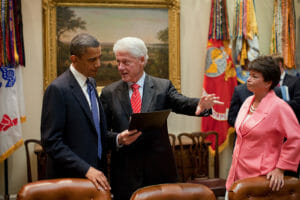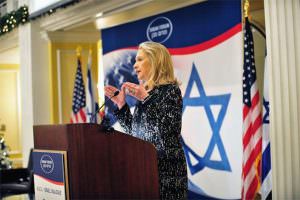Pakistani Lawyer Blocked From U.S. After Suing CIA on Drone Strikes
Pakistani lawyer and human rights champion Mirza Shahzad Akbar, who has aided the U.S. government in legal counterterrorism efforts, was banned from traveling to the States to speak at Columbia Law School after suing the CIA about drone strikes that have killed civilians in his country. (more)
Pakistani lawyer and human rights champion Mirza Shahzad Akbar, who has aided the U.S. government in legal counterterrorism efforts, was banned from traveling to the States to speak at Columbia Law School after suing the CIA about drone strikes that have killed civilians in his country.
In an open letter, Akbar describes the plight of nonmilitant Pakistanis who have lost family and friends and suffered severe injuries in such attacks, and suggests the U.S. government — which purports to value justice and the rule of law — should honor those who have sought to redress their losses through legal rather than violent means. It is difficult to know exactly how many civilians have been killed by drones, but the Brookings Institution has put the number at more than 600, with 10 civilian deaths for every militant killed. –ARK
Your support is crucial…The Guardian:
I am a Pakistani lawyer who is suing the CIA for killing innocent civilians through drone strikes in my home country. This month, the US state department prevented me from travelling to the United States to participate in a conference hosted by the human rights programme at Columbia University law school in New York City.
I have been granted US visas before and no reason was given by the state department for refusal on this occasion: despite repeated enquiries, we were merely told there was a “problem” with my application. If seeking justice through the law – instead of violence – is the reason for banning my travel, then mine is another story of how government measures in the name of “national security” have gone too far.
Although I have previously held consultancies with USAID, and helped the FBI investigate a terrorism case involving a Pakistani diplomat, my relationship with the US government changed dramatically in 2010, when I decided to take on the case of Karim Khan. Karim Khan was away from home on New Year’s Eve 2009 when two missiles fired from what we believe was a CIA-operated drone struck his family home in North Waziristan and killed his son, aged 18, and his brother, aged 35. Informed over the phone of their deaths, he rushed back to find his home destroyed and his brother’s family – now a widow and two-year-old son – devastated.
With an uncertain future and a new administration casting doubt on press freedoms, the danger is clear: The truth is at risk.
Now is the time to give. Your tax-deductible support allows us to dig deeper, delivering fearless investigative reporting and analysis that exposes what’s really happening — without compromise.
Stand with our courageous journalists. Donate today to protect a free press, uphold democracy and unearth untold stories.









You need to be a supporter to comment.
There are currently no responses to this article.
Be the first to respond.